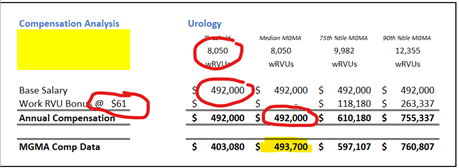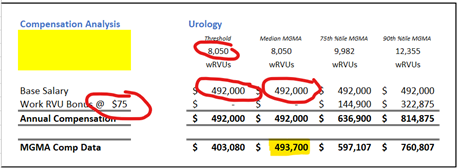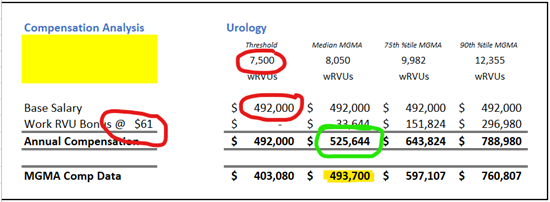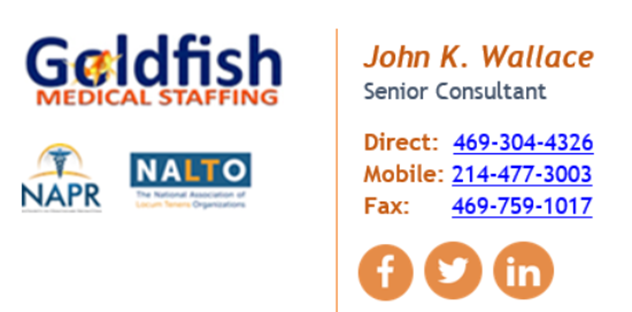Tips from a Physician RecruiterIf you are stressed about the prospect of being late to the party in your job search, step back, take a breath and take comfort in the fact that once again, Urology is among the top-5 most in demand specialties for the umpteenth year in a row! Let’s take a quick swim through some of the job search/interview topics (from a recruiters perspective) that you should probably be considering or aware of at some level. Those Pesky Recruiters Those phone calls and e-mails that you are wading through on a daily basis could very well be the path to your dream job. There is certainly an art to dealing with recruiters, but you need to know what kind of recruiter you are communicating with. There are two types of firms: Retained and contingent. Ask which one they are. Retained firms are literally contracted by a hospital or practice to help with a specific search project. They will have much more detailed information about the opportunity other than location and compensation. They will know the payor mix, have details about call schedules, historical production volumes, CPT trends and will usually have spent time in person with members of the practice on site, touring the facilities and community. Contingent recruiters are typically just looking for your CV. They could easily be working on 100 or more searches. It tends to be a volume game with them, and eventually some are going to stick. This is how your CV winds up in Scranton, PA to Pocatello, ID and 25 other places in between. Be Nice That first conversation you have with a recruiter is really your first interview. They could be representing the perfect position for you. How do you handle it when you just want to know the location but they are playing coy? Give them something. Engage on the phone, but tell them you have a hard stop of 10 minutes. If you are still interested at that point, schedule another call for a specific day and time. It gives you more control. If you are rude or short on that first interaction, they may decide NOT to move you along in the process. Leave No Doubt About Your References Unfortunately, I have seen offers withdrawn as a result of bad references…from Program Directors to peers. Do not assume anything about what you think a reference will say about you. Know specifically what they are going to say about you before giving them ANY kind of consideration. Depending on the recruiter you are working with, they might check your references for you. Another option would be to utilize a service like www.jobreferences.com
You may be taking a hard look at practicing independently VS an employed setting. Three things to consider about an employed physician model: 1. Those fat base salaries that are used to get your attention in the first year or two could be hard to replicate when renewal time comes. Know your RVU models. Make sure the threshold is reasonable and achievable. The threshold has a MUCH larger impact on how much you can make than the conversion factor (see charts below). 2. The constant churn of acquisitions and mergers between facilities and systems can be an on-going stressor. All manner of changes take place when these occur; from comp to benefits and retirement and even PTO. 3. Know that you will NEVER have any type of equity share, and many times, no voice over the direction of the practice. Here’s interesting thread between physicians discussing comp models. They are not all correct! whitecoat investor
Let’s assume a base of $492K, a conversion factor of $61.17 and a threshold of 8,050. These are all MGMA baseline figures.
Now, let’s assume a base of $492K, a factor of $75 and a threshold of 8,050 – the conversion factor increase does not beat median.
Finally, a base of $492K, a factor of $61.17 and a threshold of 7,500 – see the threshold impact? It’s NOT about the conversion factor!
So. In allll your spare time…
Well, that was fun Ya’ll! I was a physician recruiter for 15+ years, and there are NO better stories than recruiting stories! Even though I am not a recruiter any longer, I LOVE to talk about it. If you have any comments or questions about the notes above feel free to connect with me any old time. I’m happy to offer a dispassionate 3rd party perspective on any thoughts or questions you might have.
|








